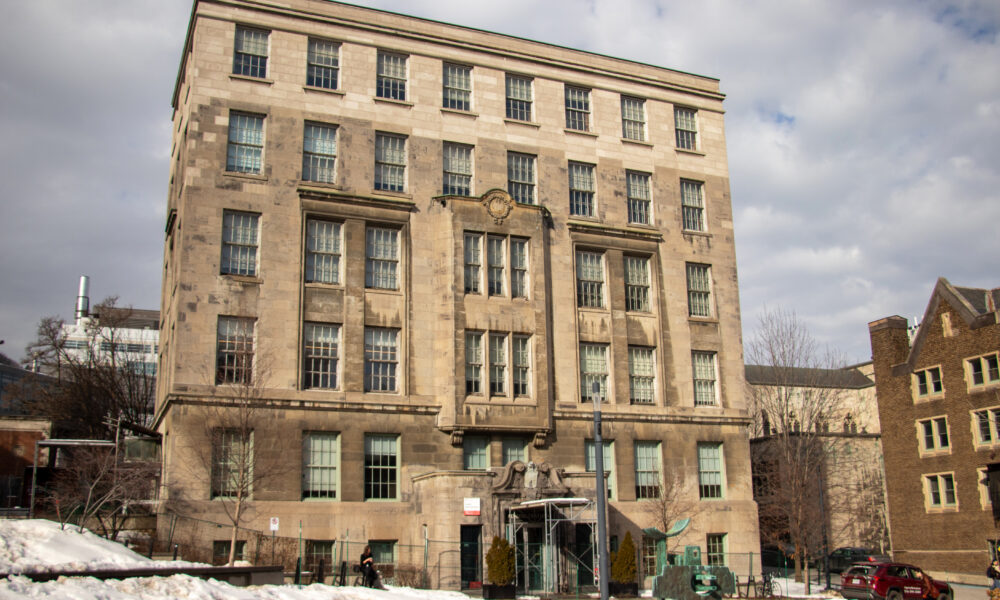On Thursday, Feb. 8 the McGill Board of Governors (BoG) convened for one of its five regular meetings of the 2023-2024 academic year. The Board’s 27 members heard remarks from McGill President Deep Saini; a report from the McGill Senate; a report from the Equity, Diversity, and Inclusion Committee (EDIC); a report from the Committee on Sustainability and Social Responsibility (CSSR); and a presentation from the Dean of the Schulich School of Music.
During his remarks on university affairs, Saini explained that he had met with Quebec Premier François Legault earlier in the week.
“We had a frank discussion [….] A number of issues related to the tuition policy were discussed, including francisation, a lot of time was spent on francisation,” Saini said. “I would not say we made any significant progress […] [but] the meeting was held in a very civilized manner. And that we’re talking at least, that’s progress. Anytime you talk to the government, it’s a good thing. And we will continue to use any opportunity to get through, to engage with government, because [at] the end of the day, McGill’s focus is on serving Quebec as well as we can.”
The President also touched on the federal government’s recent announcement that study permits for international students will be capped, but assured the Board that he thinks McGill will be largely unaffected.
After concluding his remarks, Saini then briefly presented the report from the Senate, which included a report from the Academic Policy Committee, a proposal for revisions to the Regulation on Conflict of Interest, a proposal for revisions to the Policy on the Ethical Conduct of Research Involving Human Participants, and six points of information. Both proposals were quickly approved by the Board without discussion.
Next, Inez Jabalpurwala, an Alumni Association representative on the Board and Co-Chair of the EDIC, shared updates from a Feb. 5 EDIC meeting. One of the updates concerned the development of an educational module on anti-Black racism. Jabalpurwala explained that while “there was some concern that it may counter the premier’s statements about not having systemic racism,” in the end the team “landed on […] a very principled decision that we need to go forward.”
Alan Desnoyers, Vice-Chair of the CSSR, then presented several updates related to the committee’s work. Desnoyers explained that the Office of Investments had made a calculation error when reviewing the university’s investments in fossil fuels prior to the Board of Governors’ decision to divest from top fossil fuel holdings in December 2023. The Office had calculated that, as of December 2022, direct investment in fossil fuels made up 0.5 per cent of the McGill Investment Portfolio (MIP) and indirect investments made up 0.4 per cent, which would total around $17 million. In reality, however, direct investments made up 1.0 per cent of the MIP and indirect investments made up 0.7 per cent as of Dec. 2022, approximately $31 million.
“The calculation error, to be clear, does not compromise the viability of the university’s goal to divest completely from all direct investments in the [Carbon Underground] 200 by the year 2025,” Desnoyers said.
Finally, Sean Ferguson, the Dean of the Schulich School of Music, presented an overview of the School’s global standing, local impact, research, and initiatives.
“Forty-eight per cent of the members of the Montreal Symphony Orchestra are our former students or our teachers, and 51 per cent of the Orchestre Métropolitain,” Ferguson said.
After Ferguson’s presentation, many of the meeting’s participants shared their own experiences attending performances put on by the School of Music and expressed their appreciation for the school’s work.
Moment of the meeting:
Ferguson stressed that the Schulich School of Music is both unique and world-renowned throughout his presentation. Near the end, he played a minute-long recording of a student performance from last fall to replicate the experience of sitting in Schulich Hall for the members of the Board.
Soundbite:
“Accessibility remains one of the more difficult issues to address on campus, we’ve had some challenges with making progress in this area. And I think that with this strategy […] we have a path forward. One of the discussion items that came up during our conversation was the whole area of neurodiversity and accessibility [….] And that does raise even more challenges, but it’s clearly tied to the idea of how they feel that they’re part of the McGill community, being included, and […] access.” — Jabalpurwala on the McGill Accessibility Strategy.








